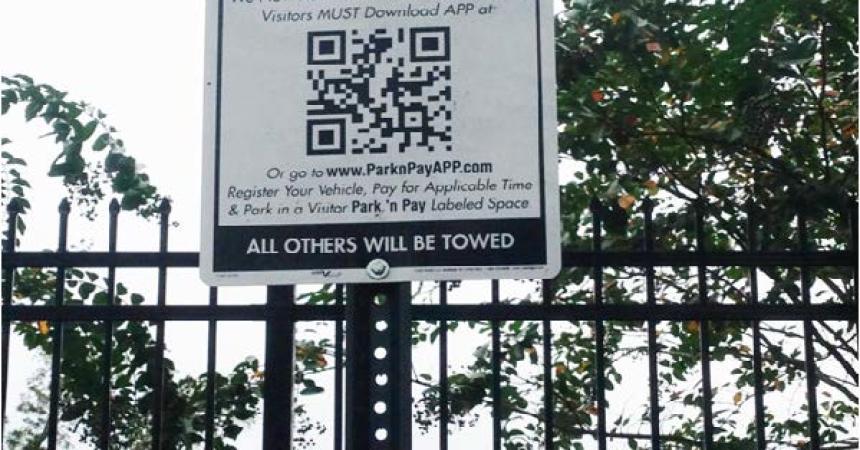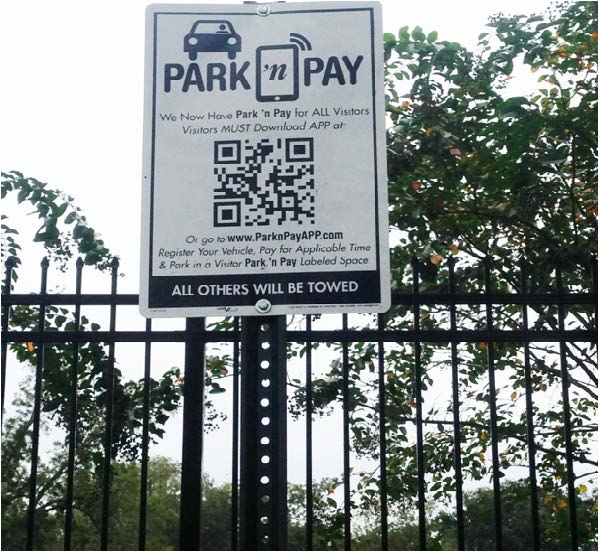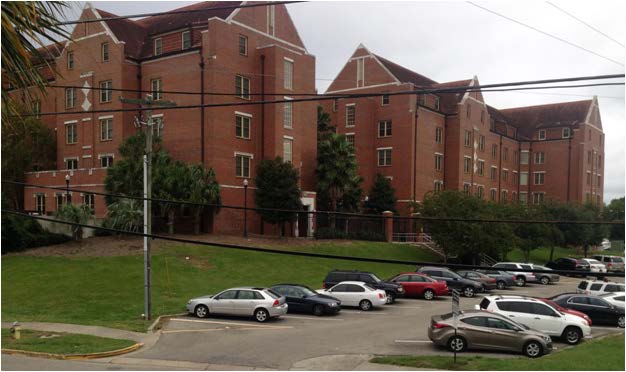
Park’n’Pay Could Help Manage Crime in Tallahassee

Park ‘n’ Pay visitors are encouraged to download the app for faster registration.
Photos by Kwantisa Harris
By Kwantisa Harris
Outlook Writer
The advent of Park’n’Pay has received mixed responses in Tallahassee and Leon County.
“Park’n’Pay is a state of the art parking application that allows for individuals visiting the community to purchase a digital visitors pass,” according to the management team at The Pointe at Adams Place.
Guests must register their full name and car information with a debit or credit card to be able to park on any property that’s in business with Park’n’Pay.
“On one hand, students who are struggling to pay for food, books and housing are now concerned with paying to park,” said FSU accounting student Sam Goodman.
On the other hand, it’s an innovative method inadvertently collecting data that could assist with crime in residential communities and surrounding areas.
Fortunately, in some locations, though it’s advertised as such, you don’t actually have to pay.
“We only charge on game days,” said Property Manager of University Lofts, Ashley Lavelle.
Centrally located just two minutes from Downtown and Historic Frenchtown, University Lofts has recently implemented the use of the application and is satisfied with the service it provides.
“Before, we actually didn’t have visitors parking. So when we added that, it’s been good because we get a list every month of everybody who’s parking on the property,” said Lavelle.
“Due to the frequency of repeat visitors, it’s an efficient way to keep tabs on unwanted guests,” she added.
According to the Florida Department of Law Enforcement’s annual Uniform Crime Statistics, Leon County has ranked number one in crime overall.
In 2014, Leon County reported 17 murders and more than 13,000 cases have been reported regarding forcible rape, aggravated assault, robbery, burglary, larceny and motor vehicle theft, according to data provided by the Florida Department of Law Enforcement’s annual crime report.
In response to Tallahassee-Leon County’s growing crime rates, the Tallahassee Police Department Public Information Officer David Northway has acknowledged the alarming statistics but was unable to speak on how Park’n’Pay effected the community’s crime rate.
And with the rapid influx of student enrollment, safety is on the top of everyone’s list in Tallahassee and its surrounding areas.
While some believed that it gave residents peace of mind because it serves as an efficient tracking system, others felt it could assist with detouring negative elements from property, thus creating safer environment for residents and visitors.
“But was the application truly implemented to serve residents or to generate revenue and exalt control?” Asked FSU Graduate Carlethia Sumpter.
She continued, “While it may serve to assist with maintaining crowd control and residential safety, it will also inflict new concerns for those individuals.”
Visitors who do not have a debit/credit card or smart phones could be negatively impacted by the system.
The system will generate new revenue for businesses and an additional bill for students. In addition, it will ultimately hurt those it serves to protect.
It seemed as if the only people that stand to gain from paid visitors parking are either the apartment complexes or the creators in the Park’n’Pay application.








